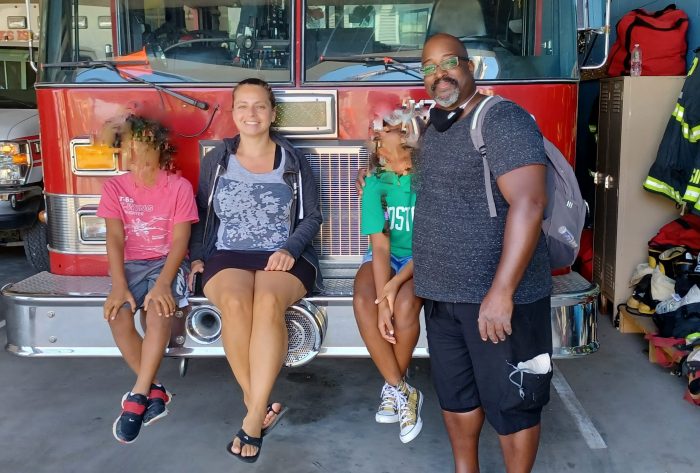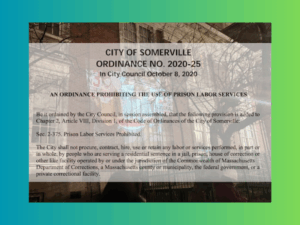While Peréa’s son’s record has been expunged, Somerville is pushing to make the police report private
(Somerville Wire) – In November of 2019, Somerville school leaders reported an incident to the police, where a six-year-old boy was accused of inappropriately touching another classmate. The Somerville Police Department’s involvement was met with outrage, considering that the child was treated like a criminal for a common behavior that doctors consider developmentally fitting. The boy is Black and Latino, while the girl is white, a fact that has led parents and advocates to call the situation racially charged. Flavia Peréa, the child’s mother, was recently informed that after a long battle, the Massachusetts Department of Children and Families is expunging her son’s records. However, the fight is not over. On Sept. 1, the City of Somerville filed a lawsuit against the state’s Supervisor of Public Records, asking for the police report to be kept secret.
Peréa said that she does not know why the City would want the report to be private but wonders what the City must be concealing.
“Are they doing this just because they can? Maybe. I’m inclined to think they’re doing it because they’re hiding something,” said Peréa. “What could they be hiding? I tend to think it’s one of two things. One, they’re actually hiding evidence of their glaring incompetence, that they bungled this, they handled it badly, they escalated it, they over-reported it, and they made a mess … Now they are reluctant to let it be known that this is, in fact, the case. The other thing they could be hiding is evidence of malfeasance, of someone actually behaving badly or doing something wrong, filing a false police report, for all I know.” She added, “It’s not even not being transparent; it’s that they have withheld information deliberately.”
According to Peréa, she first requested a police report on Dec. 3, 2019, and it was denied by SPD on Dec. 20. She made a second request for the incident report on March 3 2021, and the City denied it on March 12. She submitted an appeal to the state’s Supervisor of Public Records on June 7, and the Supervisor issued their determination on June 22, stating that the City had to explain the basis for withholding the police report. In their response on June 29, the City of Somerville failed to provide clarification regarding the City’s refusal to provide the family with the record as ordered by the Supervisor, and requested the Supervisor reconsider the determination. After opening a case for reconsideration, on July 21 the Supervisor issued a final determination that declined to reverse the findings of the previous determination. On Aug. 30, Peréa wrote to the Supervisor of Records to say “we have not received a response from Somerville, and they’re out of compliance.” That same day, Dave Shapiro, assistant city solicitor, wrote to the Supervisor saying the email was misdirected, that the Supervisor’s June 22 decision had been sent to a general inbox rather than to his email account. The City declined to comment on the situation.
Justice for Flavia, an organization that was formed in the aftermath of the original incident, has been active in doing advocacy and education around the issue. Molly Wylie, a leadership member of the group, said that she hopes to see less of a police presence in schools.
“As I understand, six or seven children under the age of 12 have had incidents reported to the police from the Somerville school system. And that was in the pandemic year, I think the 2019-2020 school year,” said Wylie. She added, “That to me is deeply alarming, because there’s no data that suggests that police involvement helps anybody. It only causes harm.”
Matt Cregor is a staff attorney at the Mental Health Legal Advisors Committee who has been following the Peréa case. He explained that the incident is an example of the school to prison pipeline at play, adding that Black and Latino students are often treated differently, when it comes to discipline, than their white peers.
“Across the nation, school districts and police departments are joining our communities in questioning the utility of placing police in our children’s schools,” said Cregor. “Sadly, Middlesex County and Somerville, in particular, have agreements between schools and police that basically require schools to share any incident, as minor as a threat made outside of school, with the local police, as a mandatory reportable incident. This pernicious approach to public safety propels our children into the school to prison pipeline, and there is no clearer evidence than the treatment of Flavia’s son.” He added, “We know that the best predictor for where police are placed in schools is not based on gun threats or violence, but it’s the mere presence of Black school children. We also know that both police and educators are likely to perceive Black and Latinx youth as older, less innocent, and more culpable than their white peers, based on psychological studies. All of these things come to a head in the classroom, when something goes wrong.”
Deputy Director of Citizens for Juvenile Justice Sana Fadel addressed the question of who should be held responsible for the way that the incident involving Peréa’s son was handled.
“When you say, ‘who’s at fault?,’ I keep remembering the statement, ‘everybody did their job well,’” said Fadel. “That is the problem: ‘I saw this incident, I’m supposed to, because if I don’t, I as a teacher am liable. So I did my job.’‘Police got involved, I saw an offense happen, it’s not my discretion to do this or that, I did my job well.’ Some administrator called the police because, ‘My school is going to be liable. I did my job well.’ It took up to the prosecutor to say, ‘For me to do my job well, I have to follow the law, and the law says you can’t [convict a six year old]. The problem with the question of ‘who is at fault?’ is we need to look at the big picture … when can we look at children and say we are here to serve and protect children?”
Peréa said that when schools “don’t have systems in place, that’s when things go wrong.”
“It was this awful convergence of an absence of structures and appropriate policies and procedures, wild incompetence amongst staff, and implicit bias in how this was handled by school administrators, the principal, and the dean of students, and overall a culture of policing and lack of transparency in the schools and in the City broadly,” said Peréa. “Those four things came together, and here we are.”
This article is syndicated by the Somerville Wire municipal news service of the Somerville News Garden project of the Boston Institute for Nonprofit Journalism.
All Somerville Wire articles may be republished by community news outlets free of charge with permission and by larger commercial news outlets for a fee. Republication requests and all other inquiries should be directed to somervillewire@binjonline.org.
SUBSCRIBE TO THE FREE SOMERVILLE WIRE EMAIL NEWSLETTER: https://eepurl.com/hpBYPv
Check out all our social media here: https://linktr.ee/SomervilleWire.
Shira Laucharoen is assistant director of the Boston Institute for Nonprofit Journalism and assistant editor and staff reporter of the Somerville Wire.








